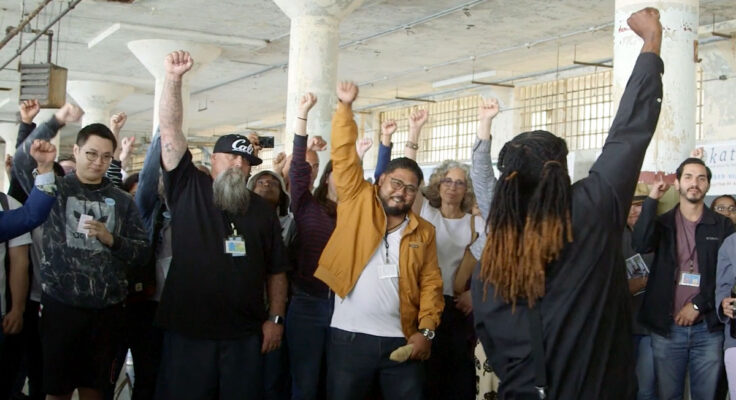For those of us who have dedicated our careers to supporting the arts, there has never been a more formidable time to be an arts funder. The Movement for Black Lives and the broader conversation about the value of arts and culture in our society and its role in amplifying the voices of Black, Indigenous, and people of color is opening opportunities for profound change.
Humans have used art and cultural expression to communicate their hopes, dreams, and fears for as long as we have walked the earth. These are the basis for the fundamental narratives of our societies, and we are in the midst of a national conversation that is reexamining narratives about white dominant culture. This cultural and political shift demands action, and we have the chance to achieve a cultural transformation that is more reflective of our society.
It’s in that context that we’d like to share how the Arts Program is addressing this opportunity. At the Rainin Foundation, we have been working across our organization to examine how we can support a more equitable future and advance anti-racist practices. We understand that there is much more we can do to elevate equity in our work.
Focusing On Systemic Change
The journey for the Arts Program gained momentum when we updated our strategic framework two years ago. We focused on systemic change and addressing structural barriers in the nonprofit arts sector. We deepened our understanding of systemic and structural racism and acknowledged the pervasive presence of white dominant culture in our policies, practices, and grantmaking. We committed ourselves to embedding equity across our work.
We have understood for some time that the model for creating and funding art is deeply flawed. Simply put, to access funding, most artists have to start or be part of a nonprofit organization. This is a complicated, expensive, and some would say archaic form of business that privileges the privileged—people who have access to mainstream audiences and legal and financial resources. In partnership with our grantees, we are exploring new models of funding to try to address this systemic challenge. We hope to unleash creativity by making support services more readily accessible and available to a variety of practitioners so they don’t have to build it all themselves.
Advancing Racial Equity In Our Practices
We understand that we need to evaluate impact, organizational health, and success in a way that promotes equity. We are developing an evaluation and learning framework that does just that. In addition, we are examining how our practices around grants compliance can be a barrier to applicants.
We are also funding organizations that are advocating for change. For example, the Center for Cultural Innovation and the Center for Cultural Power are creating programs that focus on racial equity and economic justice. We partnered with the Akonadi Foundation to deepen our learning and understanding of Oakland’s grassroots arts and culture organizations that are led by and serve communities of color.
We’ve been inspired by our grantees who have long been engaged in these conversations and are addressing these issues in their communities. For some, it has always been core to what they do, and for others it’s taking on a new resonance. We will continue to find ways to support that work.
We need to know more about how implicit and explicit bias affects our grantmaking and how we show up in our field. The fact is that despite the field’s focus on racial equity, inequities in arts funding have worsened. One way to address this is to involve our grantees more explicitly and at a deeper level by including them in the decision-making process on how and to whom resources are distributed and how we evaluate our impact.
“We need to know more about how implicit and explicit bias affects our grantmaking and how we show up in our field.”
We are eager to engage fellow funders who are committed to advancing racial equity. We can learn from one another, take advantage of our collective resources, and together with the communities we serve move the philanthropic field towards a more just future. We will also learn from and share leadership with community-based arts organizations. We want to better understand how policies and planning in wide-ranging areas—like immigration, housing, land use, and economic development—might shift to benefit us all.
As with other programs at the Rainin Foundation, we plan to collect demographic information from our applicants to better understand who we’re supporting and who we aren’t. This will give us a clear picture of our grants portfolio and help us learn where we can do better.
Finally, we will continue to deepen our commitment to racial equity in our grantmaking. It is a value that we hold close and we owe it to ourselves, our colleagues, and the artists we support to advance this work wherever we can.
“We have the opportunity to shift our culture and tell stories that reflect the fullness of our collective cultural experience.”
We have the opportunity to shift our culture and tell stories that reflect the fullness of our collective cultural experience. While we are living through one of the most tumultuous periods in our lives, it is precisely at times like these when powerful change can occur. We commit to helping lead that change.

